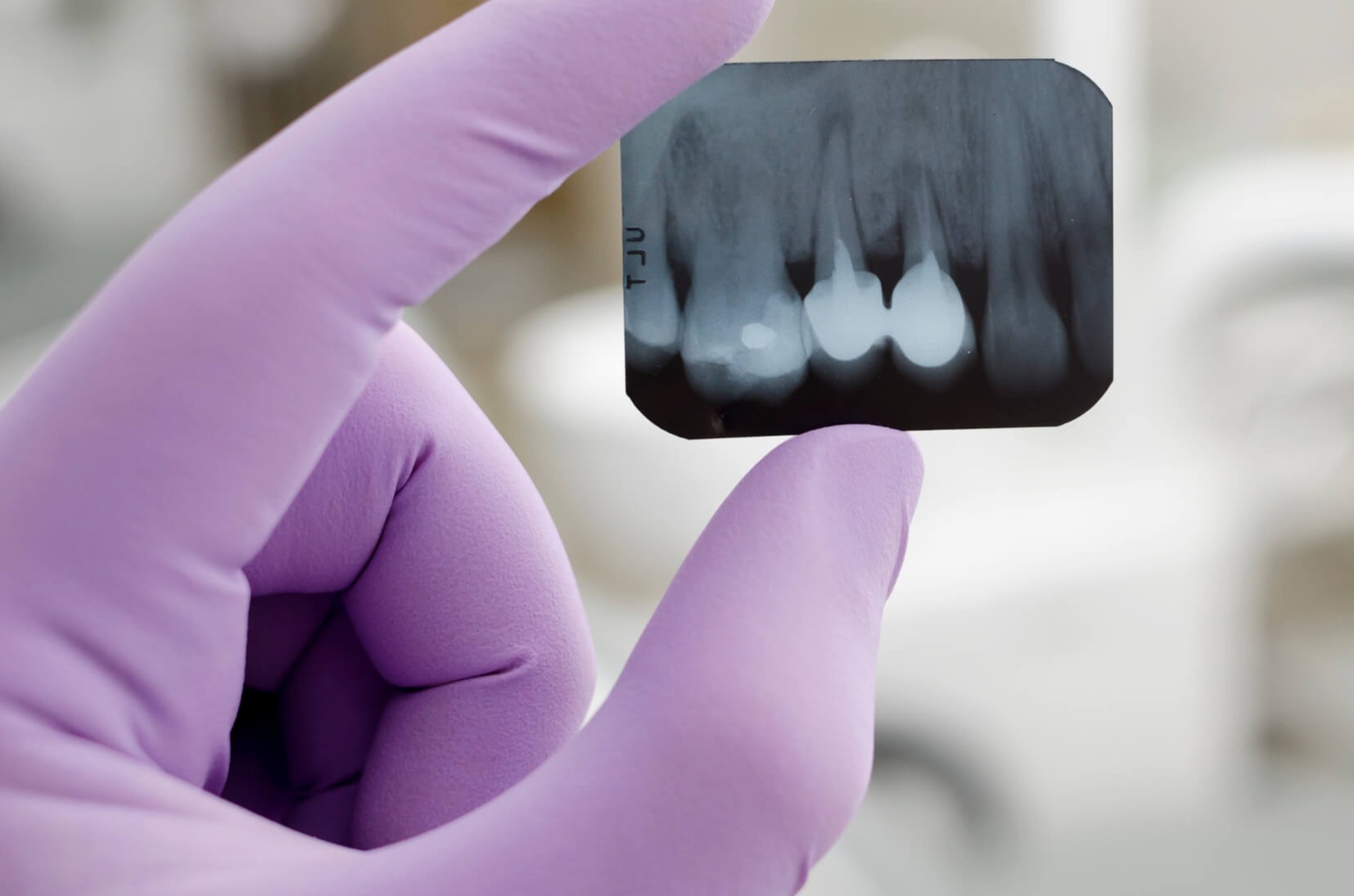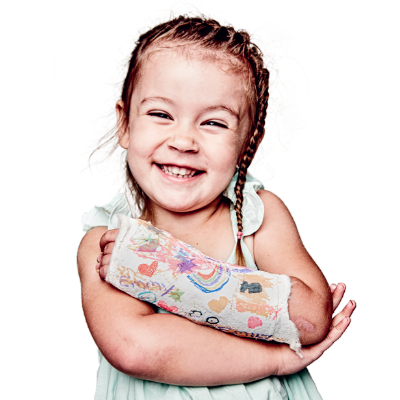Your child may need teeth removed as part of their orthodontic plan, or because of damage after an accident, or decay. They may be having wisdom teeth, baby teeth or permanent teeth extracted, or they may getting another type of dental surgery.
Whatever the reason, it’s normal to feel a bit anxious, but learning about the procedure and what to expect afterwards can help make the process a smooth one.

Prepare well for a smooth recovery
Preparing well can help make your child’s surgery less stressful for both of you. It can also help avoid complications in hospital and during recovery.
Read more about how to prepare for your child’s hospital visit
What happens when your child has a tooth removed?
Depending on the circumstances of your child’s case, you may have a choice between a local or general anaesthetic—discuss the advantages and disadvantages of each with your dentist or surgeon. Local anaesthetic can last for up to eight hours.
Your child will probably have x-rays taken, and they’ll either be given a local anaesthetic or a general anaesthetic. Either way, they shouldn’t feel pain while the dentist or surgeon is working in their mouth. He or she will apply pressure to move and loosen the tooth. Once it’s loose enough, the tooth will be taken out. The hole may be stitched up. In some cases if the tooth is under the gum or if there’s not enough tooth to grab onto, some of the gum and bone may need to be cut out to get the tooth out.
Learn more about preparing for and recovering from tooth extractions
Recovery from a dental procedure
It can take some time for the anaesthetic to wear off. This can be an uncomfortable feeling. Your child’s mouth will probably be sore and might feel swollen. You might also notice that their saliva is a different colour because there’s a small amount of blood mixed into it—this can last a few hours.
Swelling should go away after a couple days—if it continues or gets worse contact the hospital or your surgeon or dentist. Sometimes if the nerves get irritated during the procedure a temporary numbness can occur that lasts longer than an anaesthetic would—this might seem scary but it usually goes away in a few days.
If your surgeon or dentist has to cut through gum or bone, the swelling will last longer. It’s likely to be at its most swollen 36 to 48 hours after the procedure, and should start to improve after four or five days. At first it may be hard for them to open their mouth because of the swelling, but it will get better as they become less swollen. You might also notice some bruising as the swelling goes down.
Tips to reduce swelling and help make your child more comfortable
Give your child pain relief according to your doctor’s recommendations — usually paracetamol every 4-6 hours. Don’t give them aspirin since it can increase their risk of bleeding. Cool drinks or foods like ice cream or jelly may be soothing.
You can wrap an ice pack in cloth and hold it on their cheeks to help reduce swelling. Hold it on for 20 minutes; then take a 10-minute break and repeat.
It can also help to stack a couple pillows under their head when they sleep so their head is elevated. This can reduce bleeding and swelling.

Tips to reduce the risk of complications
After teeth are removed, a blood clot forms around the wound. This clot is a key part of healing. The clot protects the area from bacteria and helps allow new tissues to develop. Your child will need to take some steps to reduce the chance of the clot falling off or breaking open.
Give it time to heal
Your dentist or surgeon will give you instructions to follow, but here are some general tips.
- Don’t rinse their mouth for the first 12-24 hours.
- They’ll need to lay low for the first day—plan some relaxing activities and save running, jumping, swimming and sports for when they’re feeling better in the next couple of days.
- Make sure their head is slightly elevated when they lie down.
- They’ll need to be careful not to accidentally bite their lip/cheek/tongue while it’s still numb—remind younger children often.
Take care while eating
- Have them chew on the other side of their mouth for the next 24 hours.
- Make sure food or drinks aren’t too hot or cold, especially while the area is still numb.
- Don’t eat foods that are hard or have sharp edges for a few days (e.g. corn chips or potato chips or biscuits/crackers)—these can irritate the area where the tooth was
- Stock up on soft foods—but not just ice cream and jelly. Foods such as mashed potatoes, eggs, or smoothies, mashed veggies, soup, pasta will be easier to eat while they heal.
- Slowly ease back into a normal diet over the next week.
Keep the area clean
The day after the tooth is removed, make a solution of a half teaspoon of salt dissolved in a glass of warm water. Have your child swish it around their mouth and spit it out after their meals and before they go to bed for the next three to five days. Encourage them to brush their teeth twice a day and floss daily.
Warning signs to look out for
Signs of infection
After a dental procedure there’s a risk of infection. The advice above will help reduce that risk, but it’s still important to be on the lookout for signs of infection.
Contact the hospital or your dentist or surgeon if you notice:
- Pain continues or gets worse
- Swelling continues after a couple days or gets worse
- A fever or temperature over 38 C.
Bleeding
A small amount of blood is normal in the first 24 hours. For slight bleeding, you can wash your hands and then fold a piece of gauze, cotton cloth or handkerchief, or damp rolled bandage and place it over the area. Have them bite firmly for 10 minutes and rest with their head slightly elevated.
If bleeding continues, contact your treating dentist or surgeon or go to the nearest emergency department if it’s after hours.
Health insurance members can also call 24/7 Medibank Nurse Support to speak to a registered nurse on 1800 644 325. This service is available 24/7 at no extra cost.~
Looking for something else?
Visit our Hospital Assist homepage for a range of tools and advice to help you at every stage of your hospital journey.
Help the way you want it
Contact us
Call us on 134 190 to speak to a consultant. Alternatively, chat to us 24/7 online.
Self-service options
Login to MyMedibank or Download the MyMedibank App for self service options.
Find a specialist
Find a specialist or Member's choice hospital using our find a provider tool.

Things you need to know
~ Some referred services may involve out of pocket costs and waiting periods may apply.
While we hope you find this information helpful, please note that it is general in nature. It is not health advice, and is not tailored to meet your individual health needs. You should always consult a trusted health professional before making decisions about your health care. While we have prepared the information carefully, we can’t guarantee that it is accurate, complete or up-to-date. And while we may mention goods or services provided by others, we aren’t specifically endorsing them and can’t accept responsibility for them. For these reasons we are unable to accept responsibility for any loss that may be sustained from acting on this information (subject to applicable consumer guarantees).